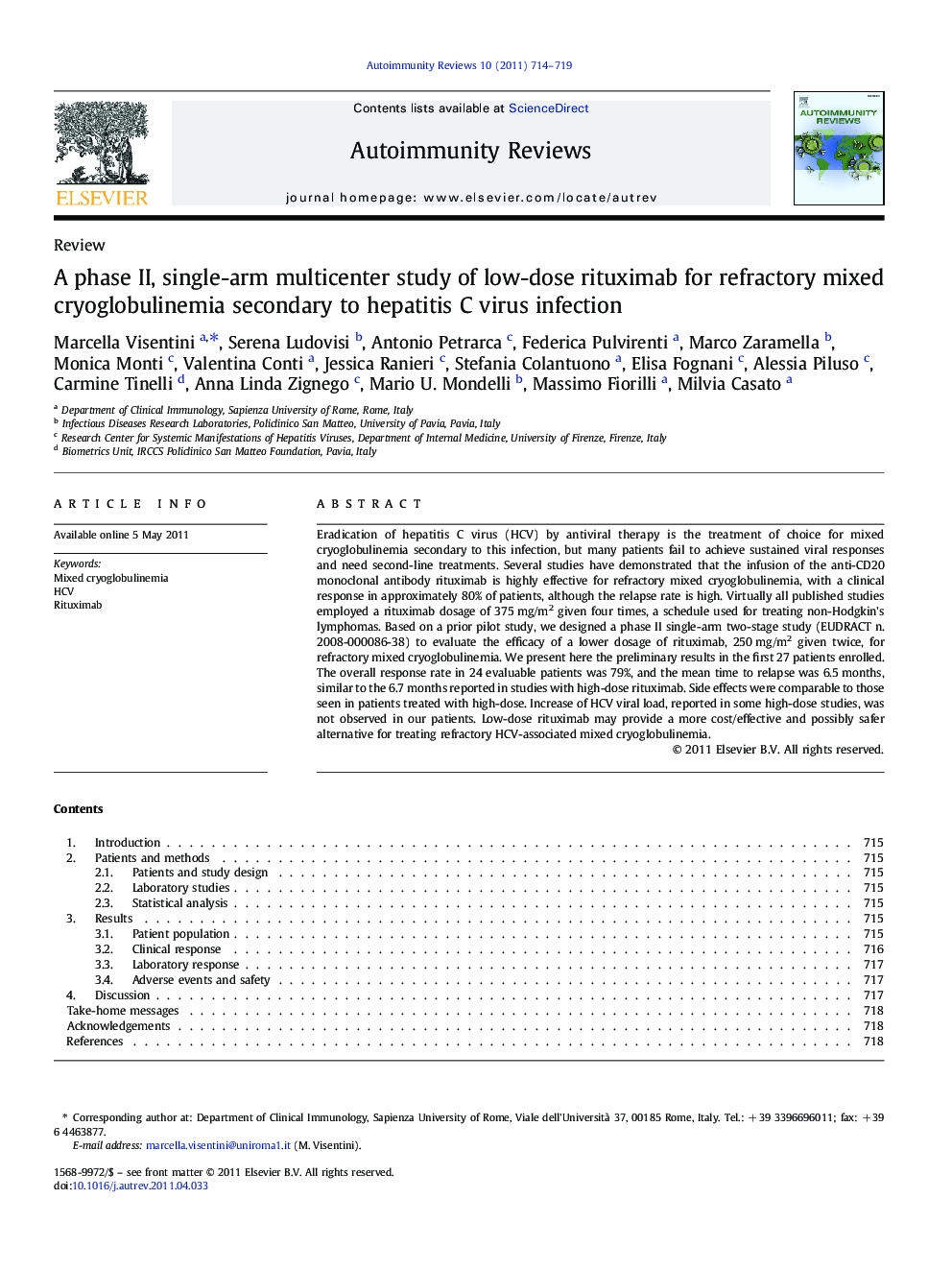| Article ID | Journal | Published Year | Pages | File Type |
|---|---|---|---|---|
| 3341932 | Autoimmunity Reviews | 2011 | 6 Pages |
Eradication of hepatitis C virus (HCV) by antiviral therapy is the treatment of choice for mixed cryoglobulinemia secondary to this infection, but many patients fail to achieve sustained viral responses and need second-line treatments. Several studies have demonstrated that the infusion of the anti-CD20 monoclonal antibody rituximab is highly effective for refractory mixed cryoglobulinemia, with a clinical response in approximately 80% of patients, although the relapse rate is high. Virtually all published studies employed a rituximab dosage of 375 mg/m2 given four times, a schedule used for treating non-Hodgkin's lymphomas. Based on a prior pilot study, we designed a phase II single-arm two-stage study (EUDRACT n. 2008-000086-38) to evaluate the efficacy of a lower dosage of rituximab, 250 mg/m2 given twice, for refractory mixed cryoglobulinemia. We present here the preliminary results in the first 27 patients enrolled. The overall response rate in 24 evaluable patients was 79%, and the mean time to relapse was 6.5 months, similar to the 6.7 months reported in studies with high-dose rituximab. Side effects were comparable to those seen in patients treated with high-dose. Increase of HCV viral load, reported in some high-dose studies, was not observed in our patients. Low-dose rituximab may provide a more cost/effective and possibly safer alternative for treating refractory HCV-associated mixed cryoglobulinemia.
